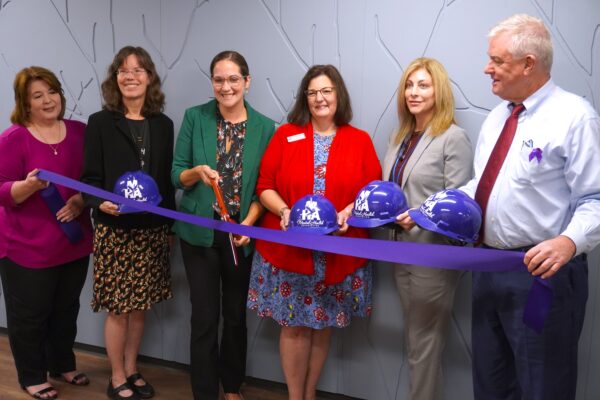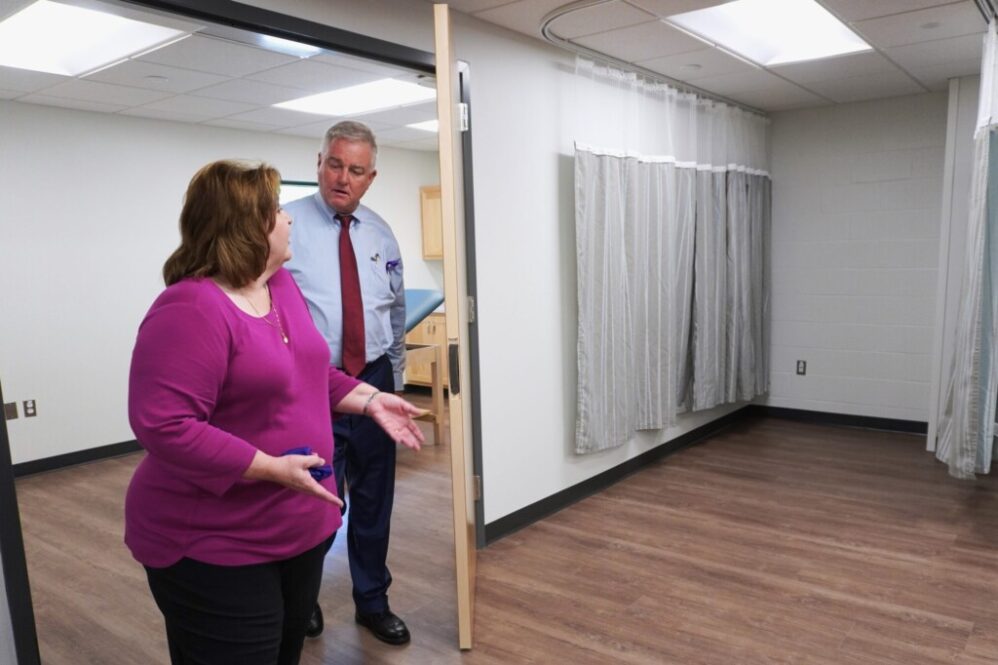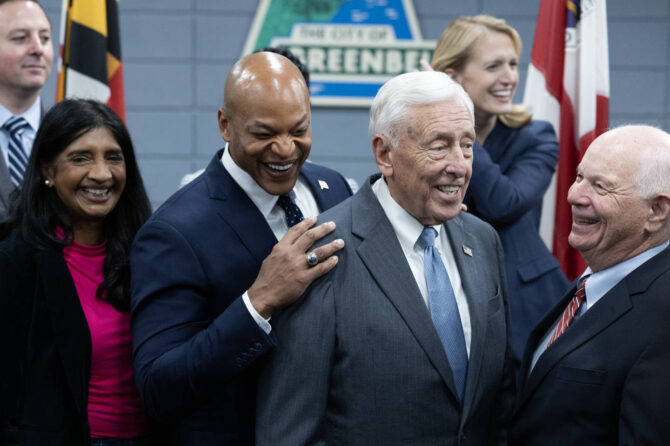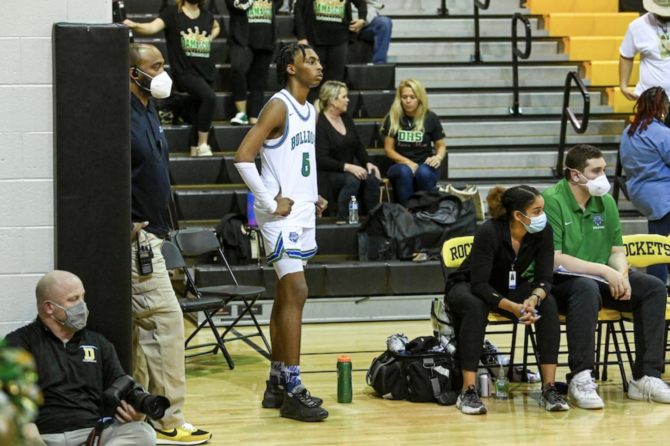MARYLAND MATTERS: With doors missing doorknobs, miscellaneous construction supplies scattered here and there, and newly painted walls that had just finished drying before the ribbon-cutting celebration began, renovations are not quite done yet at the soon-to-open 24-hour Walk-in Crisis Care Center in Frederick County.
“Please excuse the mess,” Rebecca Layman, director of development and marketing for the Mental Health Association of Frederick County, asked the room full of county officials and mental health community partners at the event Wednesday.
Despite the few minor renovation tasks that still need to be completed, the mental health advocates and elected officials were celebrating the soft-opening of a new 24-hour crisis center, which officials called the first of its kind in Maryland, aiming to provide people with immediate mental health services in their greatest times of need.
The 24/7 Walk-In Crisis Care Center is set to open in September, and the new facility speaks to a statewide and local push to improve behavioral mental health among struggling Marylanders.

A ribbon-cutting ceremony was held Aug. 30, 2023, for new 24-hour crisis care center opening in Frederick in September. Photo by Danielle J. Brown.
“It will expand and build on the county’s current behavioral health and substance use disorder infrastructure, provide stronger links to the community-based behavioral health care, provide 24/7 trauma responsive, low-barrier, voluntary care and recovery-oriented services,” Frederick County Executive Jessica Fitzwater (D) said at the ribbon-cutting.
When it opens, the 24-hour walk-in center, which has also been referred to as a “crisis stabilization center,” will be operated by the Mental Health Association of Frederick County, a private nonprofit that operates under the direction of the Frederick County Health Department to provide Marylanders readily available mental health services at no cost to them with no appointment needed.
The space that the new Walk-in Crisis Center occupies has served a host of other purposes, according to Shannon Aleshire, CEO of the Mental Health Association of Frederick County. Before the crisis center began renovations, it was a county elections office as well as a center for advanced life support.
“This building has been a number of things over the years,” she said. “I know it’s was a sheriff’s department at one point in time. It was the 9-1-1 emergency communications center at one time — so it’s had a lot of iterations.”
Now it will serve as a facility to connect struggling people with mental health services whenever they are in crisis.
“I was here earlier and — wow, what a transformation,” U.S. Rep. David Trone (D-6th), who is currently running for U.S. Senate, said. “Maybe missing a few doors, but it doesn’t matter to me. It’s really going to be unbelievable.”
Trone said that the opening of the crisis care center is the result of collaboration from the local, state and federal level.
“With those three levels of government, we can get stuff done. Big stuff done. Stuff that puts people over the politics — of all the B.S. that’s out there,” he said.
Funding for the center came from congressional earmarks, a state capital grant, and a portion of Frederick County’s American Rescue Plan Act allocation. “Operational funds will be supported by opioid settlement payments to Frederick County,” according to a county press release.
But some funds, like from the federal American Rescue Plan, are temporary, and Trone said that it is the job of the Maryland congressional delegation to seek additional funding opportunities to continue supporting state and local projects like the crisis center.
“Funding is always a moving door. And the American Rescue Plan came and is gone. I mean, we turned COVID around…but we’re going to have to keep looking for other sources,” Trone told Maryland Matters.
There is already a walk-in crisis center operating in Frederick County, but it is only open for certain hours of the day — from 10 a.m. to 10 p.m. throughout the week and shorter hours over the weekend.
But that location will move into the new facility just down the road when it fully opens in September and will be open for 24 hours a day, seven days a week
Aleshire, with Maryland Health Association, said that the services that a client receives will vary based on their situation.
“There’s de-escalation if that’s necessary, and then there’s the developmental plan on how to move forward,” she said. “That might include — if it’s a youth and they’re experiencing anxiety, it might include methods in which they can ground themselves and kind of bring themselves back. Just depends on the session. And then we follow-up with folks, which is really the important part.”
Aleshire said that what qualifies as a ‘crisis’ depends on the people who come in.
“So it can be relationship, mental health or substance use related, it could be a family matter. Some people who have reached out had just gotten a life-altering medical diagnosis. So we don’t define the crisis — the person does,” she said.
According to the Mental Health Association of Frederick, the currently operating walk-in clinic served 1,736 clients in 2023, and children were the highest percentage of clients they see. About 23% of their clients were between 13 to 17 years old, and about 18% of their clients were kids aged 12 or younger.
But at the ribbon-cutting, Aleshire shared a story from the currently operating center that demonstrates why having a center operating 24/7 can help more Marylanders in the future.
“My office, at MHA’s other building, is just off the lobby,” Aleshire said. “And there was someone in there looking for services at 8:40 this morning, and right now our services start at 10 a.m. And the person sat down in the waiting room, started filling out paperwork, and said ‘I just can’t wait until 10:00. I have a work commitment. I am going to have to come back tomorrow.’”
“And next month, when we open this center, that will no longer be the case,” she said. “They can receive services right then and there.”










